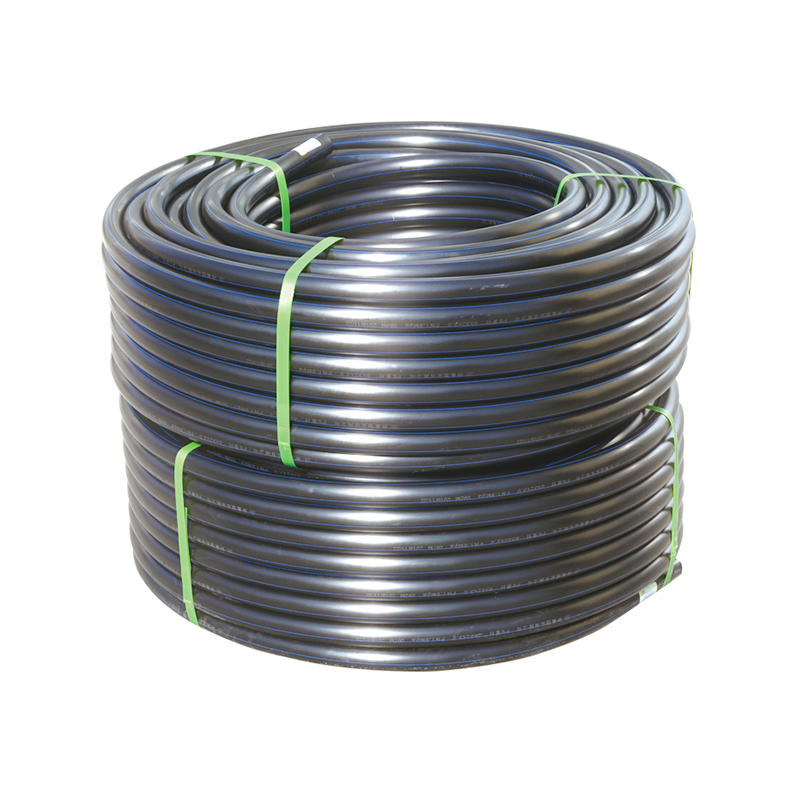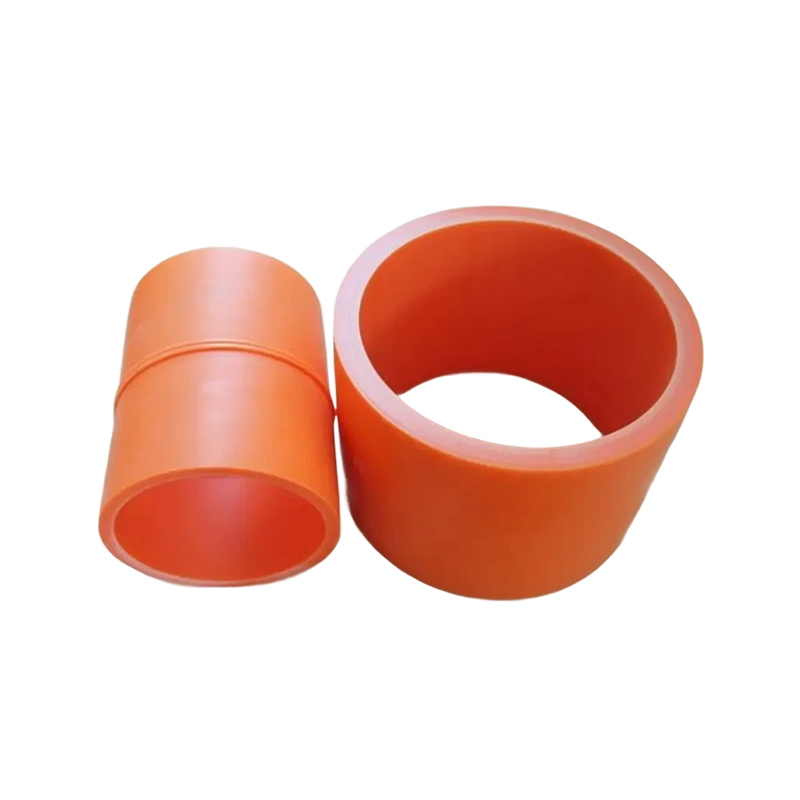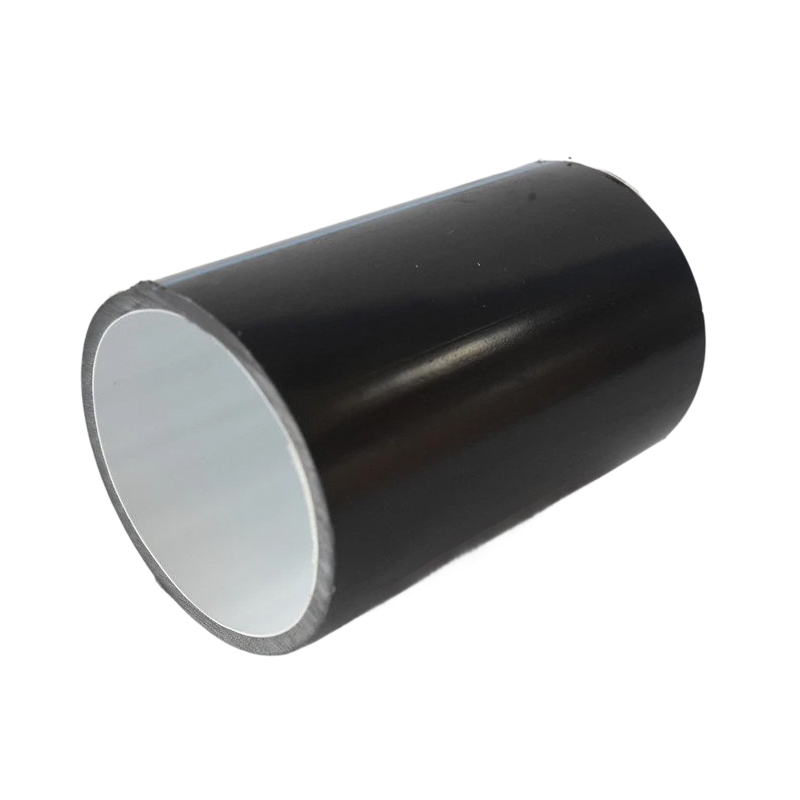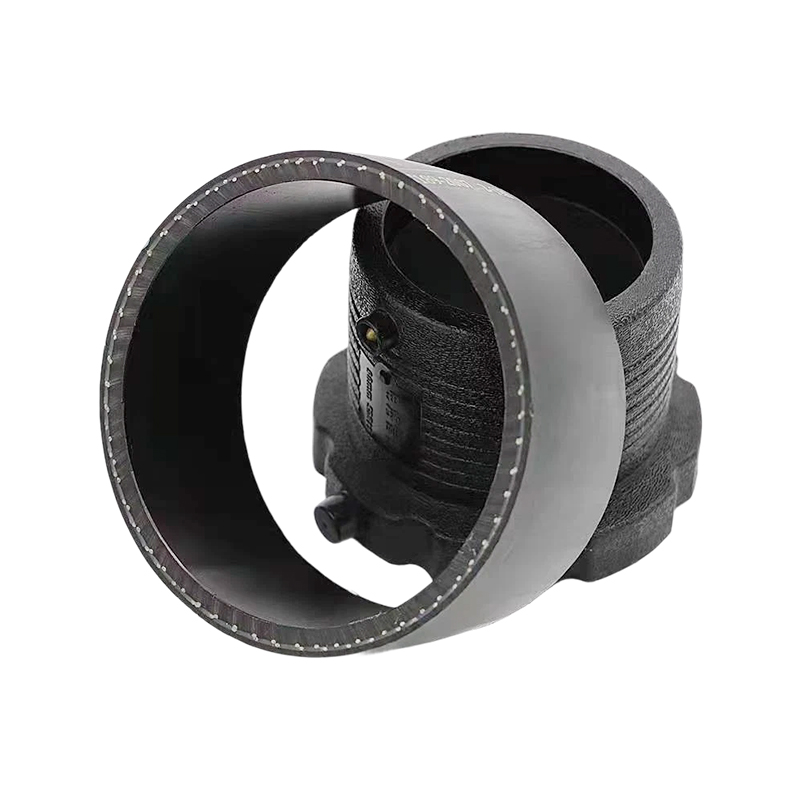How does PVC drainage pipe reduce clogging and improve drainage efficiency?
Release Time : 2025-08-27
In modern buildings, municipal projects, and agricultural irrigation systems, the smooth flow of drainage systems is directly related to operational safety, environmental hygiene, and efficiency. As one of the most widely used drainage pipe materials, PVC drainage pipe, thanks to its lightweight, corrosion-resistant, and easy-to-install advantages, has become the preferred choice for residences, apartments, commercial buildings, and industrial facilities. However, its exceptional anti-clogging capabilities and efficient drainage performance in practical applications are key to its market success.
1. Smooth Inner Surface Reduces Water Flow Resistance
PVC drainage pipe, made primarily from polyvinyl chloride (PVC-U) resin and molded using an advanced extrusion process, boasts an exceptionally smooth inner surface with a roughness coefficient (n value) of only approximately 0.009, significantly lower than cast iron pipe (approximately 0.013) and concrete pipe (approximately 0.015). This low friction coefficient minimizes resistance to sewage flow within the pipe, accelerating its flow rate. This effectively flushes away debris from the pipe wall and reduces contaminant deposits, significantly reducing the risk of clogging. Especially in gravity drainage systems, high flow rates are crucial for preventing solid particle settling, and the smooth nature of PVC pipe provides a strong safeguard for this.
2. Scientific Pipe Diameter Design Optimizes Hydraulic Performance
The diameter design of PVC drainage pipes conforms to the principles of fluid mechanics and is standardized based on drainage load and building height. A reasonable pipe diameter ensures sufficient water flow, avoiding turbulent flow, air locks, or overload caused by undersized pipes. Furthermore, PVC pipes can be used with specialized accessories such as reducers, angled tees, and large-curvature elbows to reduce eddy currents and resistance caused by sudden changes in flow direction, ensuring smooth drainage and further improving overall system efficiency.
3. Excellent Corrosion Resistance Prevents Internal Surface Scaling
Traditional metal pipes are susceptible to corrosion from acids, alkalis, grease, and microorganisms when transporting domestic sewage, kitchen wastewater, or industrial wastewater for long periods of time. This can lead to rust, scaling, pipe diameter reduction, and ultimately blockage. PVC drainage pipe, on the other hand, possesses exceptional chemical stability and is resistant to most acids, alkalis, salts, and organic solvents within a pH range of 2-12, preventing rust, corrosion, or scaling. The inner wall remains smooth and clean over time, fundamentally eliminating corrosion-induced roughness and sediment accumulation.
4. Tight connection system prevents debris infiltration
PVC drainage pipes utilize a socket-and-spigot joint, bonded with a specialized PVC glue (solvent-based adhesive). This creates an integrated seal at the joint, providing high joint strength and a strong seal. This effectively prevents sewage leakage and the intrusion of debris such as mud, sand, and tree roots through the joints. Compared to threaded or flanged connections, PVC bonding eliminates protrusions and gaps, ensuring unimpeded water flow and avoiding potential contamination and blockage caused by uneven joints.
5. Proper slope and system design work together to prevent blockage
While the pipe material itself offers superior performance, the efficient operation of a PVC drainage system requires a sound pipe layout. During installation, the drainage slope should be set strictly in accordance with specifications to ensure rapid gravity flow and minimize wastewater retention. Furthermore, inspection ports, cleaning ports, and vent pipes are strategically placed throughout the system to facilitate routine maintenance and clearing, further ensuring long-term unobstructed operation.
6. Widespread Application Verifies Reliability
PVC drainage pipe has been widely used in high-rise residential buildings, hospitals, schools, shopping malls, municipal pipe networks, and agricultural irrigation systems, demonstrating extremely low clogging rates over long-term use. Its lightweight construction also facilitates installation, reducing operator error and ensuring pipe straightness and accurate slopes, thereby improving drainage efficiency at the source.
PVC drainage pipe, with its smooth interior, optimized pipe diameter, corrosion-resistant materials, tight connections, and rational system design, provides an efficient, anti-clogging drainage solution. It not only reduces maintenance costs and the risk of clogging, but also significantly improves drainage speed and system reliability. Thanks to its excellent performance and wide applicability, PVC drainage pipe has become an indispensable core material in modern drainage projects, providing a solid foundation for building safety, environmental hygiene, and efficient resource utilization.
1. Smooth Inner Surface Reduces Water Flow Resistance
PVC drainage pipe, made primarily from polyvinyl chloride (PVC-U) resin and molded using an advanced extrusion process, boasts an exceptionally smooth inner surface with a roughness coefficient (n value) of only approximately 0.009, significantly lower than cast iron pipe (approximately 0.013) and concrete pipe (approximately 0.015). This low friction coefficient minimizes resistance to sewage flow within the pipe, accelerating its flow rate. This effectively flushes away debris from the pipe wall and reduces contaminant deposits, significantly reducing the risk of clogging. Especially in gravity drainage systems, high flow rates are crucial for preventing solid particle settling, and the smooth nature of PVC pipe provides a strong safeguard for this.
2. Scientific Pipe Diameter Design Optimizes Hydraulic Performance
The diameter design of PVC drainage pipes conforms to the principles of fluid mechanics and is standardized based on drainage load and building height. A reasonable pipe diameter ensures sufficient water flow, avoiding turbulent flow, air locks, or overload caused by undersized pipes. Furthermore, PVC pipes can be used with specialized accessories such as reducers, angled tees, and large-curvature elbows to reduce eddy currents and resistance caused by sudden changes in flow direction, ensuring smooth drainage and further improving overall system efficiency.
3. Excellent Corrosion Resistance Prevents Internal Surface Scaling
Traditional metal pipes are susceptible to corrosion from acids, alkalis, grease, and microorganisms when transporting domestic sewage, kitchen wastewater, or industrial wastewater for long periods of time. This can lead to rust, scaling, pipe diameter reduction, and ultimately blockage. PVC drainage pipe, on the other hand, possesses exceptional chemical stability and is resistant to most acids, alkalis, salts, and organic solvents within a pH range of 2-12, preventing rust, corrosion, or scaling. The inner wall remains smooth and clean over time, fundamentally eliminating corrosion-induced roughness and sediment accumulation.
4. Tight connection system prevents debris infiltration
PVC drainage pipes utilize a socket-and-spigot joint, bonded with a specialized PVC glue (solvent-based adhesive). This creates an integrated seal at the joint, providing high joint strength and a strong seal. This effectively prevents sewage leakage and the intrusion of debris such as mud, sand, and tree roots through the joints. Compared to threaded or flanged connections, PVC bonding eliminates protrusions and gaps, ensuring unimpeded water flow and avoiding potential contamination and blockage caused by uneven joints.
5. Proper slope and system design work together to prevent blockage
While the pipe material itself offers superior performance, the efficient operation of a PVC drainage system requires a sound pipe layout. During installation, the drainage slope should be set strictly in accordance with specifications to ensure rapid gravity flow and minimize wastewater retention. Furthermore, inspection ports, cleaning ports, and vent pipes are strategically placed throughout the system to facilitate routine maintenance and clearing, further ensuring long-term unobstructed operation.
6. Widespread Application Verifies Reliability
PVC drainage pipe has been widely used in high-rise residential buildings, hospitals, schools, shopping malls, municipal pipe networks, and agricultural irrigation systems, demonstrating extremely low clogging rates over long-term use. Its lightweight construction also facilitates installation, reducing operator error and ensuring pipe straightness and accurate slopes, thereby improving drainage efficiency at the source.
PVC drainage pipe, with its smooth interior, optimized pipe diameter, corrosion-resistant materials, tight connections, and rational system design, provides an efficient, anti-clogging drainage solution. It not only reduces maintenance costs and the risk of clogging, but also significantly improves drainage speed and system reliability. Thanks to its excellent performance and wide applicability, PVC drainage pipe has become an indispensable core material in modern drainage projects, providing a solid foundation for building safety, environmental hygiene, and efficient resource utilization.







